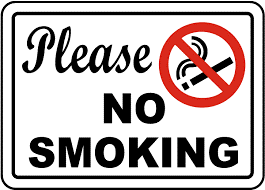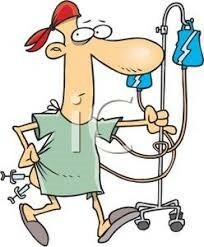- Adult Heart DiseaseDiseases of the arteries, valves, and aorta, as well as cardiac rhythm disturbances
- Pediatric and Congenital Heart DiseaseHeart abnormalities that are present at birth in children, as well as in adults
- Lung, Esophageal, and Other Chest DiseasesDiseases of the lung, esophagus, and chest wall
- ProceduresCommon surgical procedures of the heart, lungs, and esophagus
- Before, During, and After SurgeryHow to prepare for and recover from your surgery
December 19, 2018

During the surgeon-patient visit, there are numerous goals that need to be accomplished. Even when a decision for surgery has been made, many issues still need to be discussed. As a cardiothoracic surgeon, I do my best to teach patients about their diagnoses, why we recommend surgery, and what we will be doing in the operating room. We need to verify if there are any outstanding medical issues that must be addressed prior to the day of the operation, adjust any medications, and communicate with other medical professionals who might be involved. We want to be sure that our patients know what to expect on the day of surgery, what their recovery will be like in the hospital, and how they will feel when they go home. Most importantly, we need to be sure that all of the questions raised by patients and their families are answered.
The reality is that we are all limited by time constraints. And while I’d love to have prolonged chats with all of my patients, we tend to focus on the basic issues and then answer all of their questions. But not all patients know what to ask. In fact, many of the questions that I hear are either very simple (“Where will my room be after surgery?”) or extraordinarily difficult to answer (“Can you promise me that I’ll be able to run a marathon this summer?”). However, there are a lot of middle-of-the-road questions—questions that patients might not think to ask, but that I can answer and hopefully alleviate some anxiety.
1. Why is it especially important not to smoke in the days leading up to surgery?
Of course, as most people are aware, smoking is strongly linked to lung cancer. Quitting smoking is the best way to reduce the risk of lung cancer. But why is it so important to quit, if you already have cancer? Continuing to smoke puts you at greater risk of developing another lung cancer. Also, continuing to smoke in the time leading up to surgery will increase the likelihood of certain complications in the postoperative period such as pneumonia, lung failure, and the need for a ventilator after surgery. This is because even one cigarette can paralyze the cilia that help you clear secretions from your lungs, and it takes about 3 weeks from the last cigarette for the cilia to recover.

2. Why might I end up having an operation that is not minimally invasive?
We know that minimally invasive operations (VATS or robotic) have been shown to have shorter hospitalizations, better pain control, and fewer respiratory complications than those that require opening the chest (with a thoracotomy). However, not all patients are candidates for minimally invasive strategies. Sometimes, the tumor’s size or location can prevent safe removal via less invasive techniques. However, the good news is that with certain types of postoperative care, often called Enhanced Recovery Protocols, we have seen that even patients who have an open thoracotomy can recover just as fast and just as comfortably as those who have had less invasive operations.
3. Why is it important to stick to my follow-up plan with my surgeon?
Your surgeon will develop a follow-up plan that will typically include one visit in the first month after surgery to ensure you are healing well. After that, it is likely that you will have ongoing visits every several months with a CT scan for cancer surveillance. Anyone who has had lung cancer is at risk of the cancer coming back, particularly in the first 2 years after surgery. For this reason, it’s really important to keep your appointments and undergo whatever imaging is recommended by your doctor.

4. Why is it best to communicate with my surgical team for any questions that come up after I go home?
While we recognize that it is sometimes more convenient to get care closer to home, not all doctors understand the operation that you had and what possible issues may arise after surgery. In particular, medical teams who do not routinely perform lung surgery may be unsure about how to interpret chest x-rays or CT scans obtained after surgery. Of course, if it’s an emergency, for safety’s sake, you might need to go to the closest health care facility, but please keep your surgical team aware, as they may be able to guide the other doctors who are evaluating you.
5. How is quality of lung cancer surgery measured, and how do you stack up?
The quality of lung cancer surgery is measured in several ways. These include: type of operation performed (whether it’s the most appropriate one for cure), time from diagnosis until surgical procedure, whether or not the surgical margins are free from cancer, and whether enough lymph nodes were sampled. This is a very important question to ask your surgeon!
6. Why can’t I just relax in bed to recover after surgery?
While it might seem frustrating in the days after surgery that your medical team is continuously nagging you to be active, there’s a reason. We might be asking you to walk at least 3-4 times per day, to practice a lot of coughing and deep breathing, and to use special breathing devices called incentive spirometers. These types of activities have been shown to decrease chances of getting certain complications like blood clots and pneumonia.

Certainly, there are many additional questions that you might want to ask, and lots more information that your surgeon should provide. However, I hope that these questions and their answers can help set some expectations and aid you in understanding your care team’s recommendations!
Read more about Lung Cancer and before, the day of, and after lung cancer surgery.
The opinions expressed in this article are those of the author and do not necessarily reflect the views of The Society of Thoracic Surgeons.

